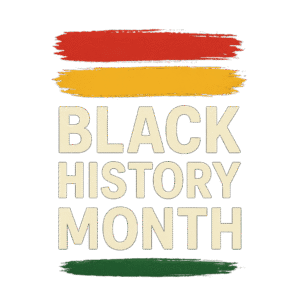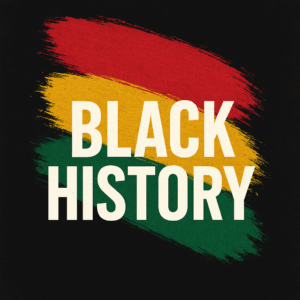OP-ED: Ann Coulter’s Comments About Native Americans ‘Deplorable’

Dr. June Deponte Sernak. Photo courtesy of Alice Paul Institute.
EDITOR’S NOTE: Longtime conservative commentator Ann Coulter created a nationwide firestorm on Sunday, June 6 in responding to a 2023 video where Melanie Yazzie, a University of Minnesota professor and Navajo Nation member discussed decolonization and climate change by posting on X: “We didn’t kill enough Indians.” The post has since been deleted. South Jersey’s Dr. June Sernak, accepted FRNJ’s invitation to reply.
OP-ED
BY DR. JUNE DePONTE SERNAK | FOR AC JosepH Media
As a high school student in a small South Jersey town, I went to my guidance counselor for suggestions of colleges that I could apply to. With a completely indifferent tone, she told me, very matter of fact, that I was not college material and should learn to type or choose a minority work study program.
Being Native American, African American and Italian American, my options were limited as a minority, however, she added that I did qualify for government cheese. My consolation prize for basically being told I had no value or intellect, was to go any further than the 12th grade.
Government cheese and vats of peanut butter were offered in disadvantaged socio-economic households. I remember that day vividly because it was one of my first encounters of racism that opened the journey of understanding historic trauma.
This week, I had that same visceral reaction when I heard the deplorable remark, “We didn’t kill enough Indians,” said by commentator, Ann Coulter on social media where she has over two million followers.
For perspective, that is 25% of the population of New Jersey. Those five words contain the same ill informed, uneducated, racist tone that I experience all those years ago. The difference is today I am an adult with a doctoral degree in Organizational Leadership and wear my culture as a badge of honor instead of a teenager navigating through a patriarchal system not designed for women or minorities.
My reaction is not of shock or disbelief, but the lack of empathy and historic content of culture yet again. This isn’t new. Every generation in history from the beginning of mankind has experienced the same divisive narrative.
The Trail of Tears was one of the first examples of imminent domain where 60,000 Native Americas and Black slaves were forcefully displaced in the mid 1800’s. In that same time period, African American landowners created Seneca Village in the borough of Manhattan which is better known as Central Park. The community of hundreds of residents included schools, churches and cemeteries yet was burned to the ground 30 years later to become the first landscaped park in the United States. A playground for the wealthy.
Just like the Trail of Tears, no stories, artifacts or school room lectures share these narratives. The food lines today for the 1 in 12 New Jersey households with food insecurities look identical to the bread lines of the Great Depression in 1929. The protests of today for equality look very similar to the protests of the Civil Rights Marches in 1965. Even the Pandemic of 1918 looked very much like the Pandemic of 2020.
We have been here before. Historic trauma reminds us of the pain and suffering our ancestors endured before us. It also reminds us of the triumph and resilience that enabled us to move forward and thrive.
The comments on social media are painful because they bring us right back to those visuals of what happened over hundreds of years. I am proud of the organizations, volunteers, legislators and media that recognize that those who perpetuate the hate speech and fear-based rhetoric are not like us.
We thrive on our cultural and are our ancestors’ wildest dreams. We are still here. The two million followers of Ann Coulter are not my people. My people unite and stand tall in the face of intolerance even in the darkest times, we share our stories with each generation to remind them of the rich history of our heritage.
One of my favorite stories I shared one evening was when an old Cherokee told his grandson about a battle that goes on inside people. He said, “My son, the battle is between two ‘wolves’ inside us all.
“One is Evil. It is anger, envy, jealousy, doubt, sorrow, regret, greed, arrogance, self-pity, guilt, resentment, inferiority, lies, false pride, superiority, and ego. The other is Good. It is joy, peace, love, home, serenity, humility, kindness, benevolence, empathy, generosity, forgiveness, truth, compassion and faith.”
The grandson thought about it for a minute and then asked his grandfather: “Which wolf wins?” The old Cherokee simply replied, “The one you feed.”
Feeding the wolf that is good will always win. We each have that choice to feed the wolf that offers compassion and empathy over hate and harm. Our history isn’t a fairytale. It is the great American novel filled with heroines and villains, tragedy and triumph. Learn about your culture and the history that unites us. Be the hero in your own story.
BIO: June DePonte Sernak, whose ancestors are from the Powhatan Renape Nation that migrated from Virginia and Delaware in the late 1800s, is the statewide diversity leadership officer for the Center for Family Services in Voorhees. In 2022, she became the second woman of color and first Indigenous person to serve as board chair of the Alice Paul Center for Gender Justice in Mount Laurel.
Follow Us Today On:
Note from AC JosepH Media: If you like this story and others posted on Front Runner New Jersey.com, lend us a hand so we can keep producing articles like these for New Jersey and the world to see. Click on SUPPORT FRNJ and make a contribution that will go directly in making more stories like this available. Thank you for reading!






I apologize for all the ignorant, self-centered people who do not see us all as one.